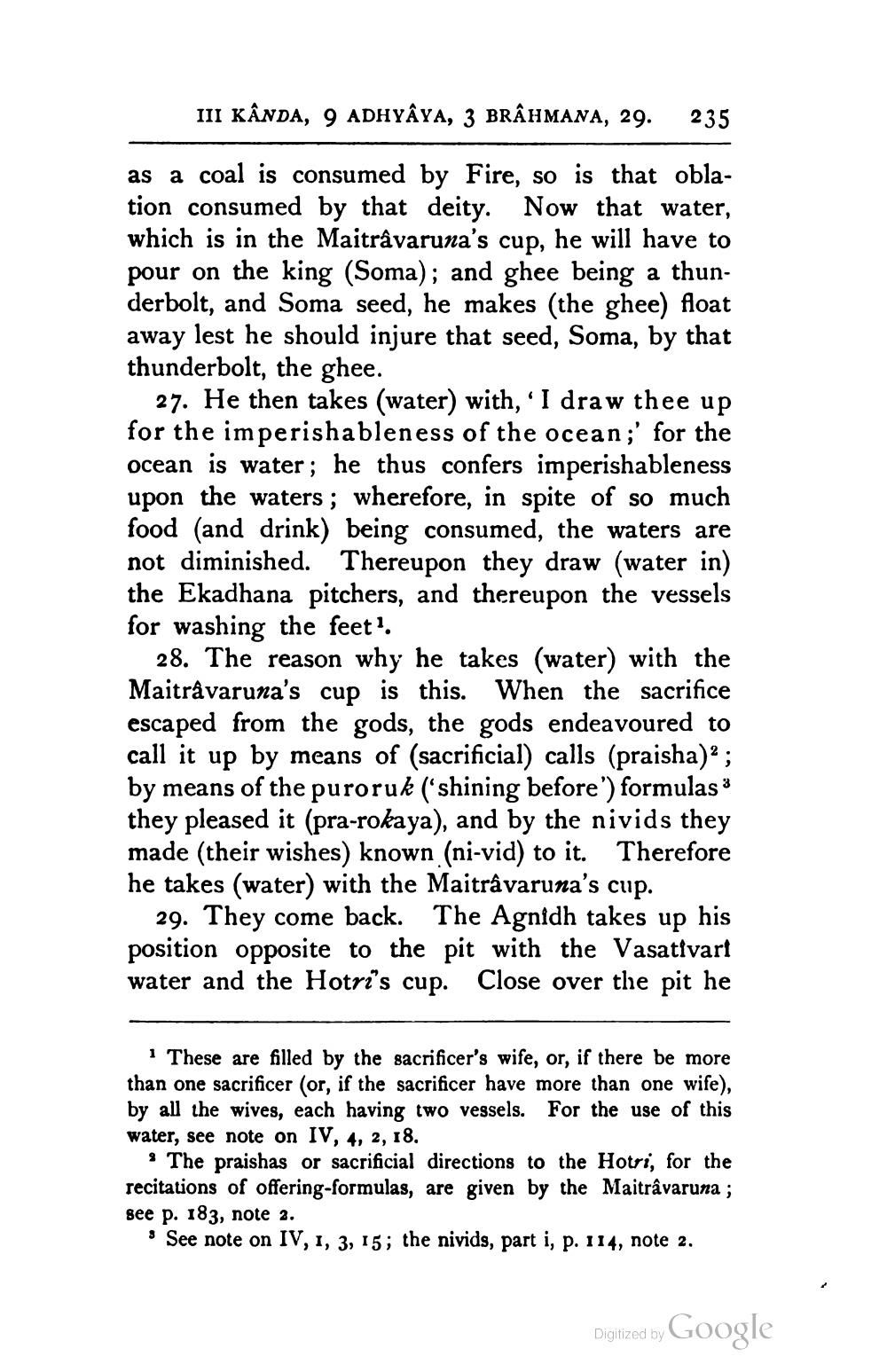________________
III KÂNDA, 9 ADHYAYA, 3 BRÂHMANA, 29.
235
as a coal is consumed by Fire, so is that oblation consumed by that deity. Now that water, which is in the Maitrâvaruna's cup, he will have to pour on the king (Soma); and ghee being a thunderbolt, and Soma seed, he makes (the ghee) float away lest he should injure that seed, Soma, by that thunderbolt, the ghee.
27. He then takes (water) with, 'I draw thee up for the imperishableness of the ocean;' for the ocean is water; he thus confers imperishableness upon the waters; wherefore, in spite of so much food (and drink) being consumed, the waters are not diminished. Thereupon they draw (water in) the Ekadhana pitchers, and thereupon the vessels for washing the feet
28. The reason why he takes (water) with the Maitråvaruna's cup is this. When the sacrifice escaped from the gods, the gods endeavoured to call it up by means of (sacrificial) calls (praisha); by means of the puroruk (shining before') formulas 3 they pleased it (pra-rokaya), and by the nivids they made (their wishes) known (ni-vid) to it. Therefore he takes (water) with the Maitrâvaruna's cup.
29. They come back. The Agnidh takes up his position opposite to the pit with the Vasatsvart water and the Hotri's cup. Close over the pit he
1 These are filled by the sacrificer's wife, or, if there be more than one sacrificer (or, if the sacrificer have more than one wife), by all the wives, each having two vessels. For the use of this water, see note on IV, 4, 2, 18.
• The praishas or sacrificial directions to the Hotri, for the recitations of offering-formulas, are given by the Maitravaruna; see p. 183, note 2.
• See note on IV, 1, 3, 15; the nivids, part i, p. 114, note 2.
Digitized by Google




